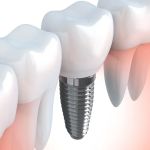Why is It Important to Have Good Oral Hygiene?
Maintaining good oral hygiene is a crucial part of taking care of your overall health. While many people associate dental hygiene primarily with preventing bad breath or maintaining a beautiful smile, the impact of good oral care goes far beyond aesthetics. It plays a significant role in your general well-being, and neglecting it can lead to a host of other health issues.
1. Preventing Cavities and Tooth Decay
One of the most immediate benefits of good oral hygiene is the prevention of cavities and tooth decay. Cavities form when bacteria in the mouth break down food particles that are left on your teeth, producing acids that erode tooth enamel. Brushing and flossing regularly remove this plaque buildup, keeping your teeth safe from harmful bacteria and acids. Over time, poor oral hygiene can lead to severe tooth decay, which may result in tooth extraction or the need for costly dental procedures.
2. Avoiding Gum Disease
Gum disease, also known as periodontal disease, is a serious condition caused by an accumulation of plaque and bacteria on the gums. It starts as gingivitis, which is inflammation of the gums, but if left untreated, it can progress to a more severe form known as periodontitis. Symptoms of gum disease include bleeding gums, bad breath, and pain when chewing. With good oral hygiene, including regular brushing, flossing, and professional cleanings, gum disease can be prevented, protecting your gums and overall health.
3. Reducing the Risk of Heart Disease
Did you know that poor oral hygiene could increase your risk of heart disease? Studies have shown that bacteria from the mouth can enter the bloodstream, leading to an increased risk of heart attack and stroke. Chronic gum infections and inflammation have been linked to cardiovascular problems, as the bacteria may contribute to the formation of arterial plaque. Regular brushing and flossing not only protect your teeth and gums but may also lower your risk of developing cardiovascular disease.
4. Preventing Respiratory Infections
Your mouth is a gateway to your respiratory system, and poor oral hygiene can contribute to respiratory infections. Bacteria from the mouth can be inhaled into the lungs, increasing the risk of pneumonia and other lung conditions. This is especially concerning for individuals with weakened immune systems or those who are already at risk for respiratory illnesses. By practicing good oral hygiene, you can minimize the spread of harmful bacteria to your lungs, helping to keep your respiratory system healthy.
5. Enhancing Your Self-Esteem
Beyond physical health, good oral hygiene can have a positive impact on your self-esteem and confidence. When your teeth are clean and your breath is fresh, you’re more likely to smile and engage socially with others. Neglecting oral care can lead to embarrassing issues such as bad breath, tooth discoloration, and gum disease, all of which can affect your confidence. Maintaining healthy teeth and gums helps you feel better about yourself, which can improve your personal and professional relationships.
6. Saving Money in the Long Run
Good oral hygiene can save you a lot of money in the long run. Regular brushing and flossing help prevent issues like cavities, gum disease, and other dental problems that can require expensive treatments. By taking preventive measures today, such as using the right toothbrush and toothpaste, flossing daily, and visiting your dentist regularly, you can avoid costly procedures like root canals, fillings, and dental implants. The small investment in time and effort for proper dental care can pay off in the form of fewer dental visits and less out-of-pocket spending on treatments.
7. Building Healthy Habits for a Lifetime
Oral hygiene is an essential part of maintaining lifelong health. Starting good oral care habits early in life can help prevent dental issues from developing as you age. Regularly brushing your teeth, flossing, and visiting your dentist for checkups should be ingrained as lifelong habits. Taking care of your oral health is not only about your teeth; it is a reflection of your overall commitment to your health and wellness.
How to Maintain Good Oral Hygiene
To maintain good oral hygiene, it's important to follow a few simple steps. Brush your teeth at least twice a day with fluoride toothpaste, floss daily, and make sure to visit your dentist regularly for checkups and cleanings. Avoid sugary foods and drinks that can lead to cavities, and try to avoid smoking, which can contribute to gum disease and bad breath. By incorporating these practices into your daily routine, you can ensure that your teeth and gums stay healthy for years to come.
Maintaining good oral hygiene is not just about keeping your teeth clean; it’s an investment in your overall health. The benefits of brushing and flossing regularly go beyond preventing cavities and bad breath. It can help reduce your risk of serious health problems, save you money, and even boost your self-esteem. So, make sure to prioritize your oral health and take the necessary steps to keep your mouth healthy and clean!







 Dr. Dental: Dentistry & Braces4.0 (459 review)
Dr. Dental: Dentistry & Braces4.0 (459 review) Teuscher Legacy Dental5.0 (326 review)
Teuscher Legacy Dental5.0 (326 review) Exclusively Endodontics4.0 (104 review)
Exclusively Endodontics4.0 (104 review) Northland Family Dentistry4.0 (111 review)
Northland Family Dentistry4.0 (111 review) Great Smiles Dental Care4.0 (472 review)
Great Smiles Dental Care4.0 (472 review) Village Dental Center5.0 (393 review)
Village Dental Center5.0 (393 review) The Importance of Oral Health Education During Pregnancy for a Healthy Pregnancy
The Importance of Oral Health Education During Pregnancy for a Healthy Pregnancy Best Tips for Brushing Your Teeth Properly for Healthy Gums: Essential Techniques for Oral Health
Best Tips for Brushing Your Teeth Properly for Healthy Gums: Essential Techniques for Oral Health Why Skipping Dental Checkups Can Lead to Bigger Oral Health Problems
Why Skipping Dental Checkups Can Lead to Bigger Oral Health Problems Advantages of Porcelain Dental Restorations
Advantages of Porcelain Dental Restorations How Can Diabetes Cause Tooth and Gum Problems? Preventing and Managing Oral Health Issues
How Can Diabetes Cause Tooth and Gum Problems? Preventing and Managing Oral Health Issues Healthy Habits for Promoting Good Oral Health and Hygiene: Tips for a Healthy Smile
Healthy Habits for Promoting Good Oral Health and Hygiene: Tips for a Healthy Smile